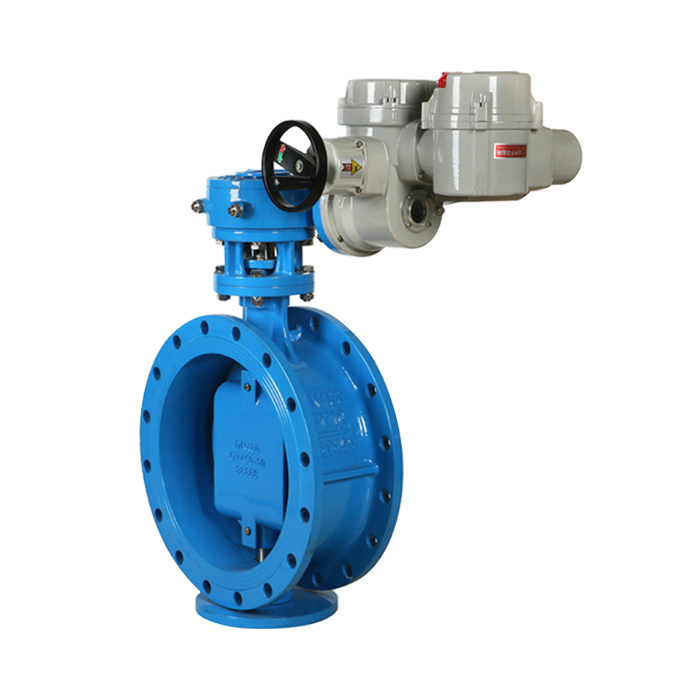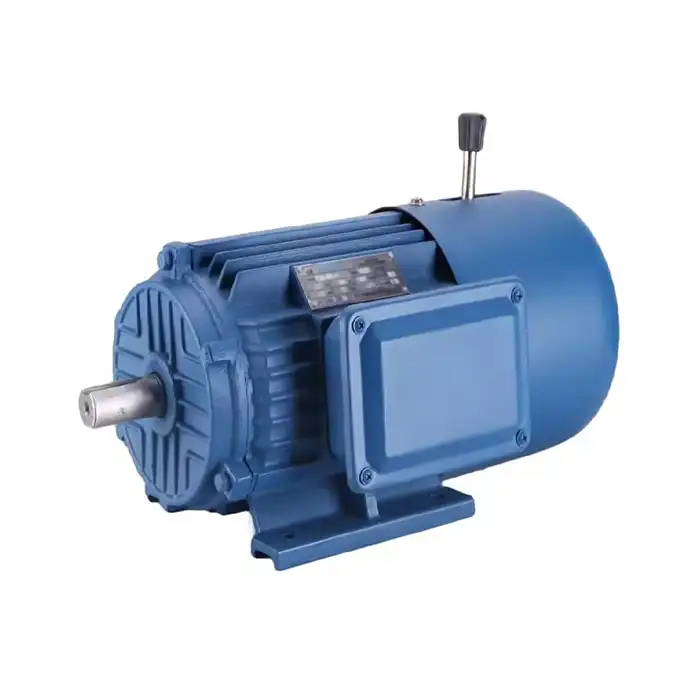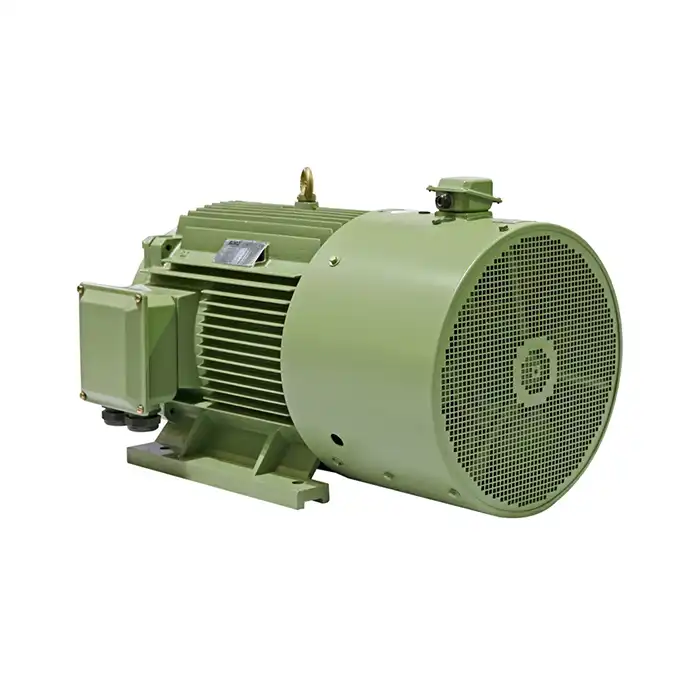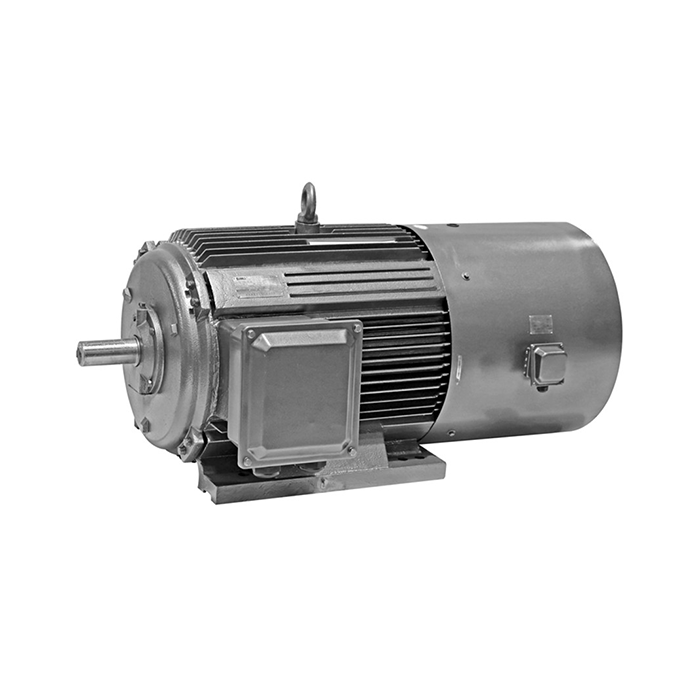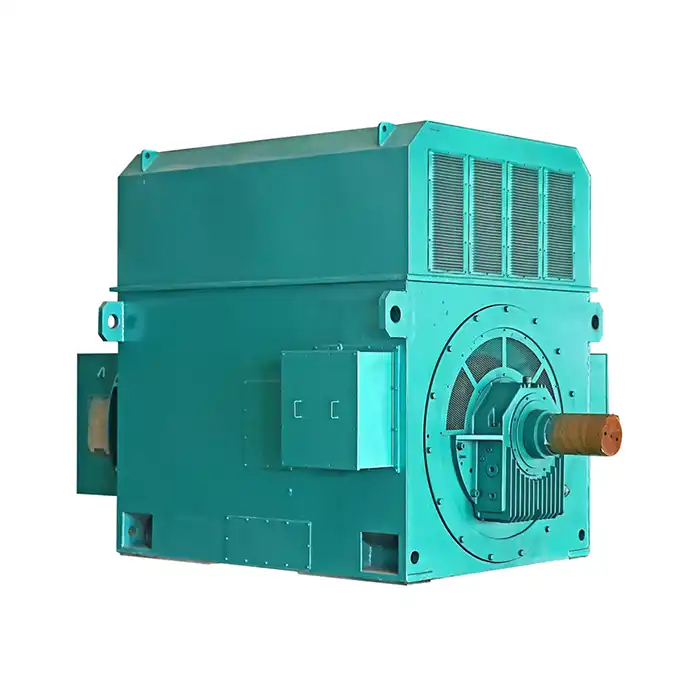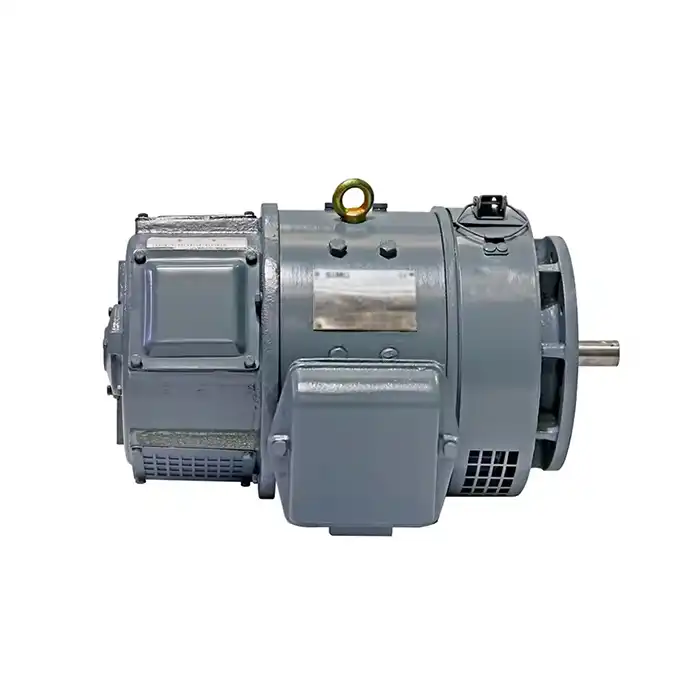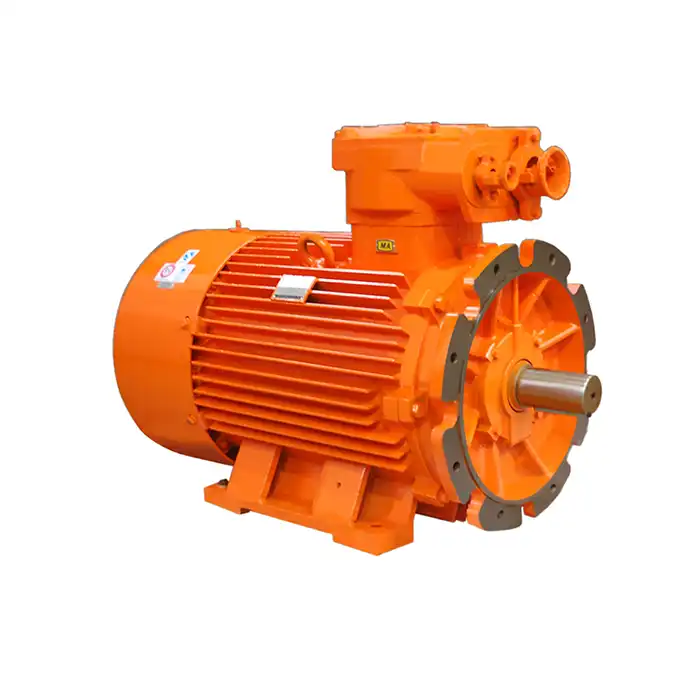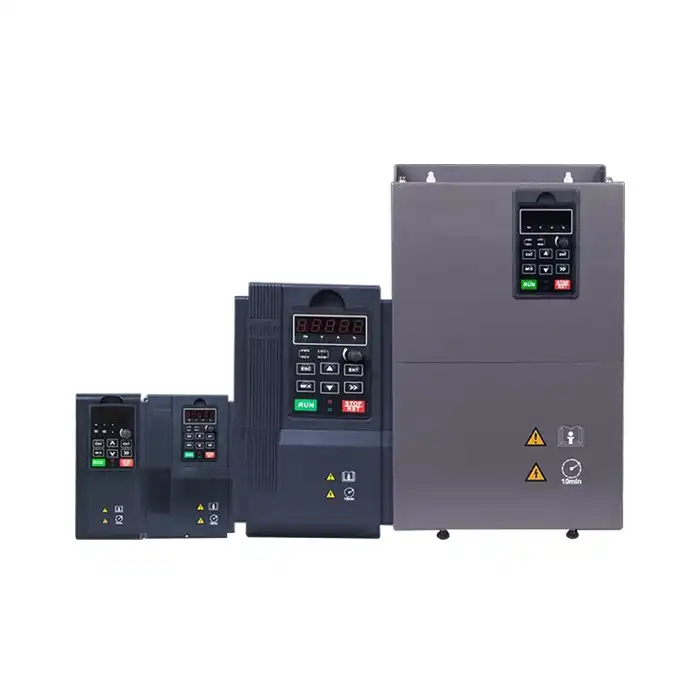Which is better: air cooled or water cooled electric motors?
When it comes to selecting the right electric motor for your industrial application, one crucial decision is choosing between air-cooled and water cooled electric motor options. Both cooling methods have their merits and drawbacks, making the choice dependent on specific operational requirements and environmental conditions. This comprehensive guide will help you understand the key differences between these cooling systems, when to opt for water cooling, and how they compare in terms of energy efficiency.

Key differences between air and water cooling for motors
Air-cooled and water-cooled motors differ significantly in their cooling mechanisms, which impacts their performance, size, and applicability in various industrial settings.
Cooling mechanism: Air-cooled motors rely on ambient air circulation to dissipate heat generated during operation. They typically feature fins or ribs on the motor housing to increase surface area for heat exchange. In contrast, water cooled electric motor systems utilize a closed-loop water circulation system to remove heat from the motor's components.
Heat dissipation efficiency: Water-cooled motors generally offer superior heat dissipation compared to their air-cooled counterparts. Water has a higher specific heat capacity than air, allowing it to absorb and transfer heat more effectively. This enhanced cooling capability enables water-cooled motors to operate at higher power densities and in more demanding environments.
Size and weight: Air-cooled motors tend to be larger and heavier due to the need for extensive surface area to facilitate air cooling. Water-cooled motors can be more compact and lighter, as the cooling system is more efficient and requires less space for heat exchange.
Noise levels: Water-cooled motors generally operate more quietly than air-cooled motors. The absence of cooling fans and the enclosure of the cooling system contribute to reduced noise emissions, making water-cooled motors suitable for noise-sensitive applications.
Maintenance requirements: Air-cooled motors typically require less maintenance, as they have fewer components in their cooling system. Water-cooled motors necessitate regular checks of the coolant level, water quality, and potential leaks in the cooling system.
Environmental considerations: Air-cooled motors are more susceptible to environmental factors such as dust, humidity, and ambient temperature fluctuations. Water-cooled motors offer better protection against these external influences, making them suitable for harsh or contaminated environments.
When to choose water cooling over air cooling?
While air-cooled motors are widely used and suitable for many applications, there are specific scenarios where water cooled electric motor systems prove advantageous:
High-power applications: Water-cooled motors excel in high-power applications where significant heat generation occurs. The superior cooling capacity of water allows these motors to operate efficiently at higher power outputs without overheating.
Compact installations: In situations where space is at a premium, water-cooled motors offer a more compact solution. Their efficient cooling system allows for smaller motor sizes while maintaining high performance levels.
Harsh environments: Water-cooled motors are better suited for dusty, dirty, or corrosive environments. The enclosed cooling system protects critical components from contamination, extending the motor's lifespan and reducing maintenance requirements.
Noise-sensitive applications: For industries where noise reduction is crucial, such as healthcare facilities or residential areas, water-cooled motors provide a quieter alternative to air-cooled options.
Constant high-load operations: Applications that require motors to operate continuously under high loads benefit from water cooling. The efficient heat dissipation ensures consistent performance and reduces the risk of thermal damage.
Extreme ambient temperatures: In environments with high ambient temperatures or poor air circulation, water-cooled motors maintain their efficiency better than air-cooled alternatives. This makes them suitable for use in hot climates or enclosed spaces.
Precision control requirements: Water-cooled motors maintain more stable operating temperatures, which can be crucial for applications requiring precise control and consistent performance.
Energy efficiency comparison: Water vs. air-cooled motors
When evaluating the energy efficiency of water cooled electric motor systems versus air-cooled options, several factors come into play:
Cooling efficiency: Water-cooled motors generally achieve higher cooling efficiency due to water's superior heat transfer properties. This enhanced cooling allows the motor to operate at higher efficiencies, particularly under heavy loads or in high-temperature environments.
Power density: The efficient cooling of water-cooled motors enables higher power density designs. This means that water-cooled motors can deliver more power output for a given size, potentially reducing overall energy consumption in certain applications.
Temperature stability: Water-cooled motors maintain more consistent operating temperatures, which can lead to improved efficiency over time. Fluctuating temperatures in air-cooled motors may result in varying efficiency levels throughout operation.
Auxiliary power consumption: While water-cooled motors offer efficient cooling, they require additional energy for pumps and circulation systems. This auxiliary power consumption should be factored into overall efficiency calculations.
Environmental impact: The higher efficiency of water-cooled motors in certain applications can lead to reduced energy consumption and, consequently, lower greenhouse gas emissions. However, the environmental impact of coolant production and disposal should also be considered.
Long-term performance: Water-cooled motors often maintain their efficiency better over time, as they are less affected by environmental factors that can degrade air-cooled motor performance, such as dust accumulation on cooling fins.
It's important to note that the energy efficiency comparison between water and air-cooled motors is not universally applicable. The most efficient choice depends on the specific application, operating conditions, and environmental factors. In some cases, air-cooled motors may prove more energy-efficient, particularly in applications with moderate power requirements or in environments with favorable ambient conditions.
When selecting between air and water-cooled motors, consider factors such as the required power output, operating environment, space constraints, noise regulations, and long-term maintenance costs. A thorough analysis of these factors, along with energy efficiency considerations, will help determine the most suitable cooling method for your specific industrial application.
Conclusion
In conclusion, both air-cooled and water cooled electric motor systems have their place in industrial applications. While air-cooled motors offer simplicity and lower maintenance requirements, water-cooled motors excel in high-power, compact, and demanding environments. The choice between the two ultimately depends on your unique operational needs and the specific conditions of your application.
Are you looking for high-efficiency, reliable electric motors for your industrial applications? Look no further than XCMOTOR. We specialize in providing customized power equipment solutions, including state-of-the-art water-cooled electric motors, to meet the diverse needs of industries such as manufacturing, process control, HVAC, energy production, and water treatment. Our team of experts is ready to assist you in selecting the perfect motor for your specific requirements, ensuring optimal performance and energy efficiency. Don't let suboptimal motor cooling hold back your operations. Contact us today at xcmotors@163.com to discuss how our advanced water-cooled electric motors can enhance your industrial processes and drive your business forward.
References
1. Johnson, M. (2022). "Comparative Analysis of Cooling Systems in Industrial Electric Motors." Journal of Power Engineering, 45(3), 278-295.
2. Smith, A. & Brown, T. (2021). "Energy Efficiency in Water-Cooled vs. Air-Cooled Motors: A Case Study Approach." International Conference on Industrial Electrification, pp. 112-125.
3. Zhang, L. et al. (2023). "Thermal Management Strategies for High-Power Electric Motors in Industrial Applications." Applied Thermal Engineering, 203, 118614.
4. Rodriguez, C. (2020). "Environmental Impact Assessment of Cooling Systems in Large-Scale Electric Motors." Sustainable Energy Technologies and Assessments, 41, 100810.
5. White, R. & Green, S. (2022). "Noise Reduction Techniques in Industrial Motor Applications: Air vs. Water Cooling." Noise Control Engineering Journal, 70(4), 331-342.
6. Lee, H. (2021). "Optimization of Motor Cooling Systems for Harsh Industrial Environments." Industrial Systems Engineering Review, 9(2), 75-89.



